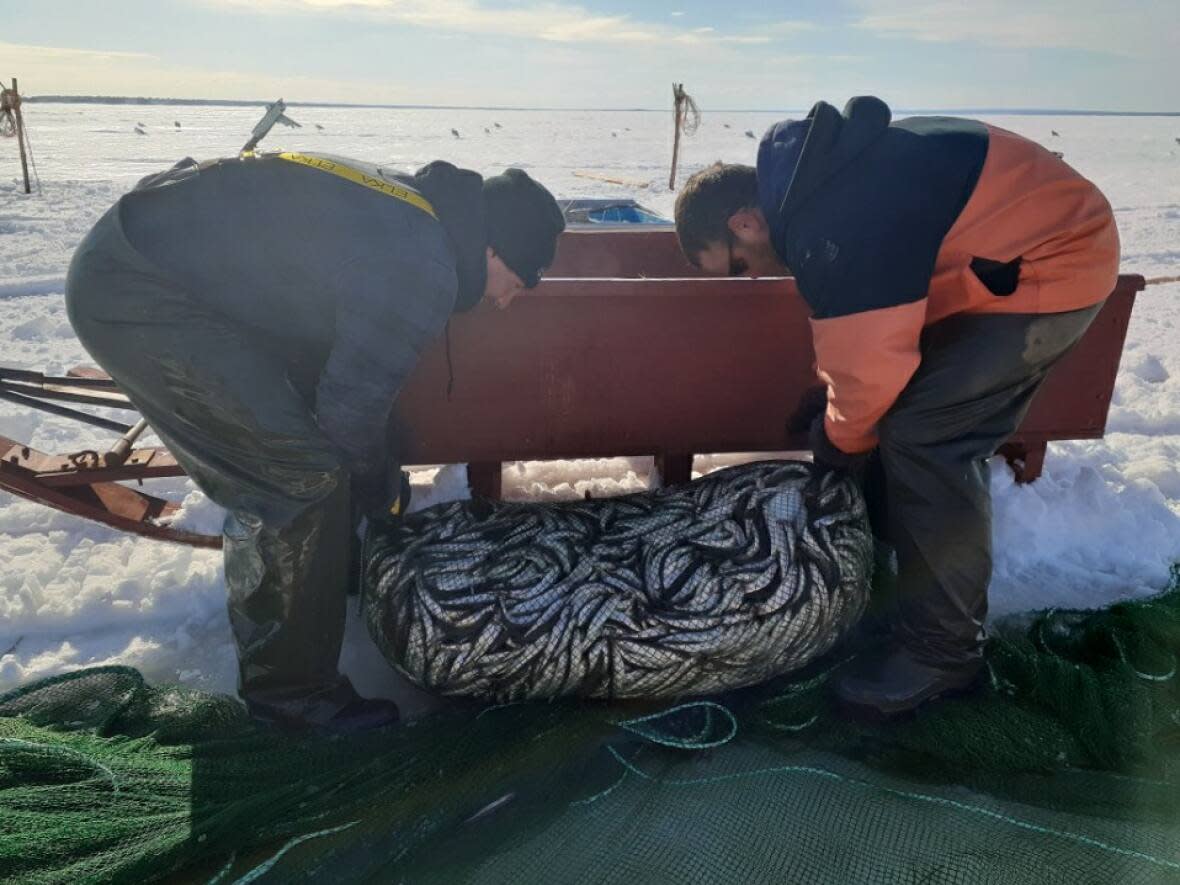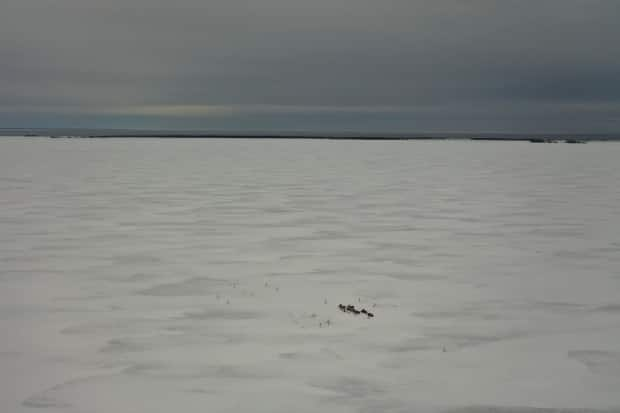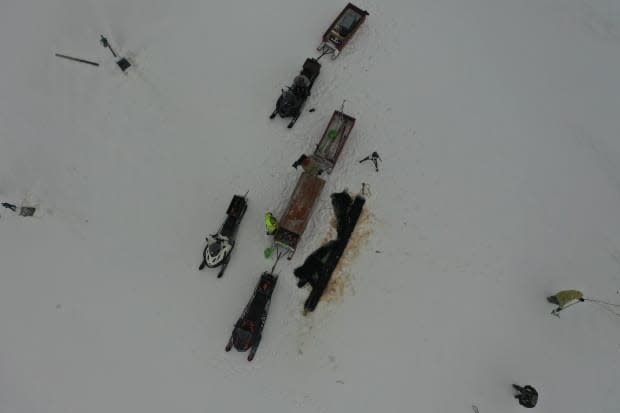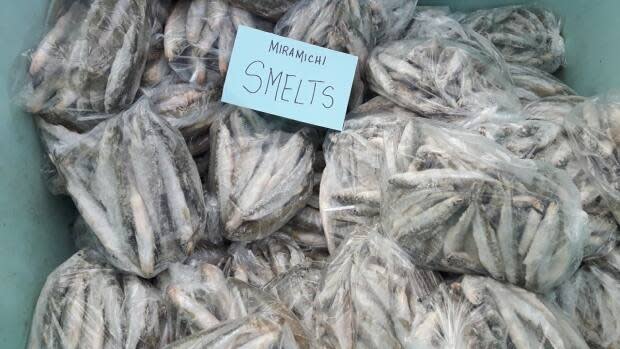'Tasty little critter': Fishing for smelt on the frozen Miramichi Bay

From the shoreline, Lynn Gregan's fishing operation in Miramichi Bay just looks like a few sticks poking up through the ice.
When you make the trek across the frozen water by snowmobile and see it up close, it still looks like just sticks and ice.
But when the chainsaws come out it's a whole other kettle of fish. A kettle of smelt to be specific.
"A smelt is a delicate, tasty little critter fish that we have here in many Maritime provinces," said Gregan. "But here in Miramichi Bay, it's a delicacy."

As chainsaws cut five holes through a foot of ice, the frozen, barren sheet is quickly turned into a bustling fishery.
Those poles locked in the ice are placed long before freezing temperatures set in. They're used to keep a box net in place underwater.
Once the season for the little silver fish begins, four lines are freed by cutting four square holes with the chainsaws. The fifth is the "smelt hole", a gash slightly longer than four metres and less than a metre wide, allowing Gregan to pull his nets up and land hundreds of smelt at a time.
"We try to average a thousand pounds a day," said Gregan. "That's ballpark number."

Once out of the water the fish flash freeze. With no tree cover out on the ice of Miramichi Bay, sharp winds can easily make it feel like –40, even if the weather is mild.
The frozen fish are piled into a wooden sled towed by the snowmobiles and then it's on to the next net. With 20 nets in total, he tries to get to at least seven a day, pulling each one up every three days.
Working from 8 a.m. to 5 p.m., mostly on the frozen bay, isn't for everybody, says the retired lobster fisherman.
"It's really a dying breed," said Gregan. "There's not too many young fellows now wanting to take it up because you're out in the elements so much. And really it's not as good a dollar value as in the other species."

But there's few fish, other than salmon, that can rival the smelt for cultural relevance in the area. Baked, deep-fried, smoked, or cooked in a frying in batter, the small 15-to-18 centimetre fish has the ability to pull a community together.
"A 'smelt fry' is normally a fundraiser for a community, whether it's the church or Skidoo club or to different organizations around," said Gregan. "You have a darn good scoff and a dessert and a lot of comradeship with your neighbours."
Cultural fish
Tim Williston also makes a living off smelt. The co-owner of Cocagne Seafoods Ltd., a fish market about 15 kilometres north of Shediac, says about 90 per cent of the fish he processes each year are smelt.
"About 300,000 pounds," said Williston "It's from all over the Maritimes."

Williston describes the taste of the white fish as "sweet" and echoes Gregan's opinion of smelt being a big part of the culture on the coast.
"Church dinners, fundraisers, pre-COVID a lot of the snowmobile clubs and sportsmen clubs would put them on for fundraisers," said Williston.
Before the fish became a staple in community fundraisers, Gregan says it was a way to make a meagre living during the toughest time of the year.
"It's one of our mainstays in our community back in the older days… when there was no E.I or social systems," said Gregan. "All our forefathers had to go onto ice and fish."
He says it's evolved into a much more comfortable job for fishermen, trading horses for snowmobiles and using chainsaws instead of handsaws.
Gregan says each day they lubricate their chainsaws with cooking oil instead of chainsaw oil to keep from contaminating the waters they fish.
But despite the advances, it still means frigid hours on the ice every day. And although he's retired from lobster fishing, he says he'll keep smelt fishing for as long as he can.
"It's not as expensive as lobsters or scallops, but they are some tasty," said Gregan.


